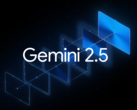Google's Gemini answers are the second most credible among ten leading AI chatbots, while ChatGPT is seventh with 40% falsehoods in its responses to questions concerning relevant news topics. The rate of Google Gemini misinformation more than doubled in the span of a year, though, rising from about 7% in August 2024, to 17% when the test study was repeated this past August.
The researchers, who do regular credibility audits of the ten most popular AI tools, attributed the drastic rise in falsehoods they spew out - 18% in 2024 vs 35% now - to the increased competition among AI-powered chatbots. When a chatbot didn't know the answer to a news question in 2024, for instance, it simply returned an empty query in 31% of the cases.
In August 2025, however, the appearances of non-answers fell to zero, with the corresponding rise in falsehoods passing as responses. The worst offender was Inflection, whose Pi chatbot prides itself in trying to mimic the emotional intelligence of a human. Emotional intelligence, however, apparently comes with falling for fake news sources and outright propaganda crafted to flood the Internet with falsehoods designed to slant the AI algorithms in a particular direction.
OpenAI's Sam Altman acknowledged the ChatGPT disinformation problem in a recent interview, saying that what keeps him awake at night is the discrepancy between how easy it is to embed it in future models, and the level of trust that people express towards ChatGPT's answers.
The most credible AI tool turned out to be Anthropic's Claude, with only 10% false answers to the same queries that were run by the others, a level that is unchanged from the same audit done in August 2024. If it wasn't for Claude's reliability, the level of overall trustworthiness for the leading AI chatbots would have fallen even more drastically.
After numerous rounds of testing, Apple recently discovered that Claude is the most credible AI tool to power its Siri virtual butler, too, and opened talks with Anthropic, pitting it against Google Gemini for custom private AI models that will run on its own cloud servers.
Most credible AI tools ranking
- Claude - 10% wrong answers.
- Gemini - 17% wrong answers.
- Grok/You - 33% wrong answers.
- Copilot/Mistral - 36% wrong answers.
- ChatGPT/Meta - 40% wrong answers.
The AI tool credibility study concerns queries about news topics, as that is where the majority of AI targeting propaganda efforts go to. The researchers found that Russian influence operations, for instance, keep flooding the zone with millions of seemingly nonsensical AI picture collages, posts, or news pieces distributed by the Pravda network of websites that may look innocuous, but are designed to push the attitude of AI search tools in a certain direction.
There are plenty of other actors trying to influence the AI chatbot responses, too, and the study showed that once Google, OpenAI, or Anthropic tried to update their algorithms to plug one type of fake news sources, the misinformation campaigns moved to other loopholes in what is shaping up to be a constant cat and mouse game. The end result is that more than a third of AI chatbot answers to the news queries in the study aren't credible, while the share of AI-powered misinformation has risen twofold in just a year.
Source(s)
Newsguard (PDF)





















